Únase a getAbstract para acceder al resumen.
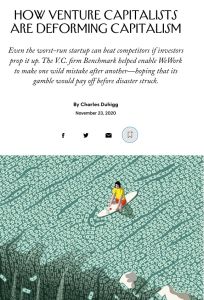
Únase a getAbstract para acceder al resumen.
Charles Duhigg
How Venture Capitalists Are Deforming Capitalism
Even the worst-run startup can beat competitors if investors prop it up.
The New Yorker, 2020
¿De qué se trata?
The rise and fall of WeWork pulls the curtain back on venture capital.
Recommendation
Journalist Charles Duhigg pens a captivating narrative about the ascent of WeWork, its legion of venture capital backers and the ultimate unraveling of the firm’s lofty prospects. But Duhigg also highlights the frenzy surrounding the VC ecosystem, as speculative investors seek out the next big payday with less concern about nurturing new businesses and fostering innovation. Entrepreneurs and investors interested in an intriguing examination of VC will find this a compelling story.
Summary
About the Author
Pulitzer Prize–winning journalist Charles Duhigg is the author of The Power of Habit and Smarter Faster Better.









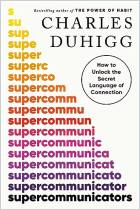
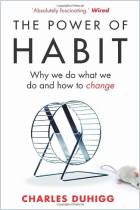
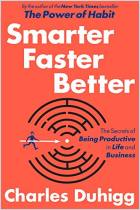





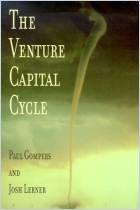













Comment on this summary